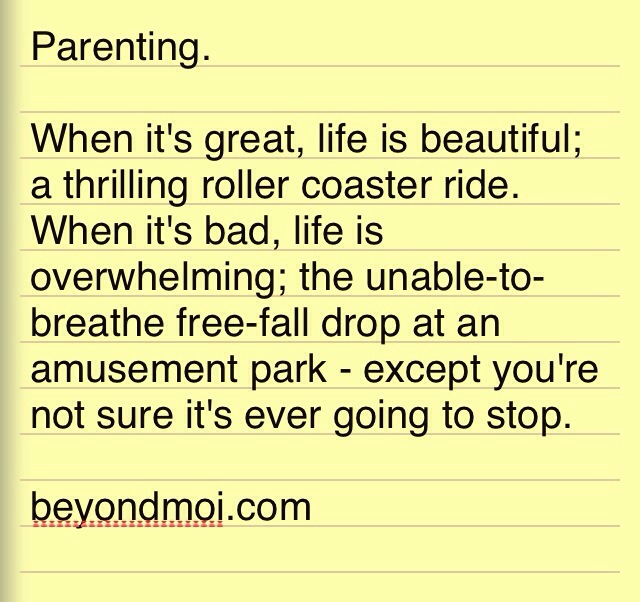“You don’t have to like Lizzie – but you still have to treat her with respect.”
“You don’t have to play with Roger – but that doesn’t mean that you get to be mean to him.” “Could there be something that they are having a hard time with that has hurt them and that’s why they aren’t being kind to others?”
One of the lessons that we end up teaching each of our children is that it’s ok for them to not like certain people, but that not liking someone does not entitle them to treat that person poorly.
It’s hard for our kids to admit that they don’t like someone. I’m not sure exactly why. I suspect it’s because they feel that they are expected to like everyone, and it probably unintentionally comes from Jessica and me. I wonder if they end up processing the message that they should try to get along with everyone as an expectation that they should also like everyone.
It would certainly be easier to get along with everyone if we liked everyone. I can see that.
But that’s just not possible. We can’t like everyone. By way of example, I offer the following two names:
Obama
Trump
If those names had no effect on you, I’m sure you can find your own examples of people that you haven’t liked at some point of other in your life. Also, you must be some kind of saint.
We regularly help our children work out how they can do a better job treating those that they don’t like with respect. This stems from our basic belief that everyone we meet deserves a minimum level of treatment that includes respect, politeness, and kindness. So we will call our kids out when their treatment of others lacks the respect they themselves would want to receive, and help them strategize how to do better next time.
And it all starts with telling them that it’s ok to not like everyone.
That being said, this does not apply to situations of bullying and individuals not respecting their boundaries. We are very clear with them about their right to defend themselves and their need to get away and ask for help in those situations.
It gets a little more complicated when the person they don’t like is a sibling. Then we add the words “right now” to our guidance. “I understand that you don’t like your sister right now, but that doesn’t give you the right to smash her Lego tower.”
And when the dislike of a sibling escalates to: “I HATE her!” we get to talk about the power of words, temporary feelings, and the difficult concept of still loving a person even when we don’t like them.
It feels so good to successfully help our children navigate through relational challenges, to find a better way of relating to others, especially the challenging people they don’t particularly care for.
It’s such great advice, so logical, so simple, until I find that I’m the one struggling with that tension in one of my own relationships, with a person that I see all the time, and I’ve discovered that I just don’t like them anymore – right now. I can’t stand them, and if they were anyone else, I would probably choose to end the relationship with them. But they’re not just anyone else. It’s my own kid I’m talking about.
Sometimes I don’t like my own kids.
I can hear you arguing with me that it’s not that I don’t like my kids, it’s that I don’t like the choices they’re making. And I’m sure that that’s where it started. It began with my kid choosing to lie to me one time. Or yelling at me. Or saying something horrible to me like how they want to punch me in the face. Or maybe it’s not what they say, but how they’re saying it, seething as they do, their voice carrying a murderous undertone. It started there, and it led to them stomping on my patient and loving response. Over and over again. And then they kicked my attempt at establishing a boundary for myself in the ribs. “I won’t let you treat me that way.” – SMACK! (a kick to my boundaries’ ribs).
And straight to my heart.
When a person acts a certain way over and over, that thing eventually ends up defining how others see them. Treat people with love and kindness consistently, you’ll be known as a loving and kind person. Lie to people all the time, you’ll be known as a liar. Say hateful and angry things to people constantly, you’ll be seen as an angry and hateful person. It’s pretty simple.
And often that hateful and angry presence is coming from a place of hurt or frustration or shame. Hurt, frustration, and shame don’t help anyone.
So when I say that there are times when I don’t like my own kids, it’s not hyperbole. I TRULY can’t stand to be around them. It can be for a day or two, or can last for months or even years at a time, with occasional glimmers of hope (like during the dreaded 9-12 years).
What can we do as parents when we don’t like our own kids?
Like I said, if anyone else treated me that way, it would end our relationship. But these are my kids. I can’t just end it with them.
I love them. Even when they treat me badly.
I feel like I should like them, because what kind of parent doesn’t like their own kids?
But sometimes I really don’t.
So what can we do? Could we apply those rules we taught our kids to our own relationship with them? What kind of advice would it be if I can’t apply it in my own life?
Pretty crappy, that’s what. On top of which, I would be a complete hypocrite.
So here goes: the advice I would give myself if I were my own kid.
“Jeremy, you don’t have to like her. It’s ok if you don’t like her. You’re not a bad person for not liking her. But you still have to treat her with respect, and politeness, and kindness. You don’t get to be mean to her just because you don’t like her. You don’t get to yell at her, or say mean things or call her names, and you certainly don’t have a right to hit her. Have you tried talking with her to find out why she’s being mean to you? What underlying issue is she having a hard time with? Has something happened that has triggered shame, anger, frustration, and alienation in her and that’s why she’s having difficulty being kind? Have you let her know that you won’t let her treat you that way? If those things don’t work, it’s ok to say that you don’t feel safe around her right now because of the way she’s been treating you. It’s ok to say that you don’t want to be around her unless she treats you better.”
And because she is my kid and not some person I can choose to avoid, I would add:
“Have you told her that you love her today? Have you offered to hug her? Have you looked for meaningful, positive ways to connect with her? Maybe what you need is a positive experience together to help you both remember how much you like spending time together.”
But sometimes we don’t like people and it’s not because they treat us badly, it’s just that we don’t connect well with them. Sometimes we don’t like someone because they’re just… different. What happens when that weird person you don’t like is your own kid? Here’s the advice I would give myself:
- You’re not a horrible person for thinking that your kid is weird. Everyone is weird in their own way. Her way just happens to be a brand of weird you don’t naturally jive with.
- Treat her with respect, politeness, kindness, and love, just like you do with your other kids. Sometimes this means putting your own feelings aside.
- Honor our decision to not use punitive measures or attempt to manipulate her. (We don’t spank our children, sometimes I still want to, but this is why we don’t.)
- Acknowledge that she’s having a hard time and gently and patiently help her identify what is underlying the behavior and support her in working through it when she’s ready.
- Recognize that this could be a sign that something deeper is going on and she doesn’t know how to ask for help. (See here for how acting out was a sign of our daughter’s sexual abuse.)
- Embrace my role in helping her navigate her feelings and how she treats others, don’t expect her to be a grown up (and remember that plenty of grown ups struggle with this- children are people too!)
- Don’t let her get away with things, or with treating you with lower standards than you would expect of your other kids just because you think she’s odd. Hold your boundaries.
- Get to know her.
- Get to know what she likes, and connect with her based on that.
- Don’t give up.
- She deserves your love and attention, even though it takes more effort and you feel less reward from it.
Many of these are the same things we encourage our children with when they aren’t liking someone. We’re all still learning.
Finally, sometimes we don’t like people because we haven’t had our coffee yet. Or because we’re stressed. Burned out. Frustrated. Or some other reason that has NOTHING to do with them. In that case, it would be best to have as little interaction with others until we have figured out how to cope with life again. I would start with coffee. And if that’s not enough, finding a way to get some space from them so you can sort it out (Netflix to the rescue! And maybe friends and wine).
We can’t possibly like all people all the time, and this applies to our children as well. Sometimes the best advice we can give ourselves is the same advice we give to our children in similar situations. If it doesn’t apply well to our own lives, it may be time to assess if the guidance we’re offering our children is total bologna and needs to be changed, or if it’s because of a maturity or circumstantial difference.
It’s ok to have times when we don’t like our kids. This does not mean that we don’t love them.
PS: If you feel that you have an unhealthy level of anger, animosity, or hate toward your children, I would encourage you to talk to someone you trust about it, and/or seek professional help. It may be a symptom of a bigger problem that could cause harm to you and those you love.
~ Jeremy
.
.









Thank you for the honesty of this post. It really hit home in a big way! As a parent I sometimes find it incredibly challenging ‘to like’ my own child. I will always love him, but I don’t always like him. Our personalities clash. It’s nice being reminded that it’s okay to have these feelings, and that I’m not alone in these feelings. Love and light xx
Whoa. I needed this. Thank you.